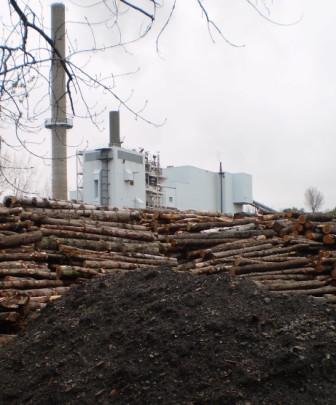|
|
JUNE/JULY 2012
Are Massachusetts' New Biomass Regulations Strong Enough?
Apr. 27, 2012: The Massachusetts Department of Energy Resources finally released its long awaited and much delayed biomass regulations,
garnering both cautious praise and criticism from grassroots biomass
opponents. The regulations have disqualified stand-alone biomass power
facilities from receiving Renewable Energy Certificates—a ratepayer
subsidy under the state’s Renewable Portfolio Standard—though incentives
are still available for combined heat and power facilities operating at
50% efficiency, that burn whole trees along with logging “residues.”

Florida Trash Incinerator Proposal Bites the Dust
A
trash incinerator proposal for St. Lucie, Florida has fallen through
following a unanimous decision by the St. Lucie County Commissioners to
terminate the contract with Georgia-based Geoplasma, citing
economic concerns. The 24 megawatt incinerator would’ve incinerated 600
tons of trash per day using a technology called plasma arc, which turns
garbage into a gas and slag, a solid waste byproduct.
Poultry Power Poops Out in North Carolina
A
36 megawatt biomass incinerator that would have burned poultry feces is
no longer being considered for Biscoe, North Carolina, to the relief of
Montgomery and Moore County residents and grassroots community groups,
such as Blue Ridge Environmental Defense League (BREDL), which opposed the project.
Nurse Speaks Out on Biomass Health Threats
- by Debbie Martinez, RN
(read full post)
As
a registered nurse I find it alarming that Alachua County's huge
medical community has remained silent on dangerous smokestack emissions
as more research now demonstrates that air pollution from the city's
planned biomass incinerator will pose a significant health risk to
adults, children and the unborn within a 200 mile radius of GRU's
Deerhaven site.
Report: "Carbon Neutral" Biomass a Scam
(read full post)
A new report by Spain-based Carbon Trade Watch critiques plans by the United Kingdom government and European Union Emissions Trading System (EU ETS)
to ramp up industrial-scale biomass energy production under the guise
of “carbon neutrality,” despite its massive greenhouse gas emissions and
threats to public health and global biodiversity.
Beyond Burning: In-Pipe Hydro
Lucid
has developed a simple five-blade turbine built inside a segment of
water pipe that can be installed when a utility, like the Portland Water
Bureau, replaces a stretch of aging or leaking pipes.
|
|
|
|
|
|
|